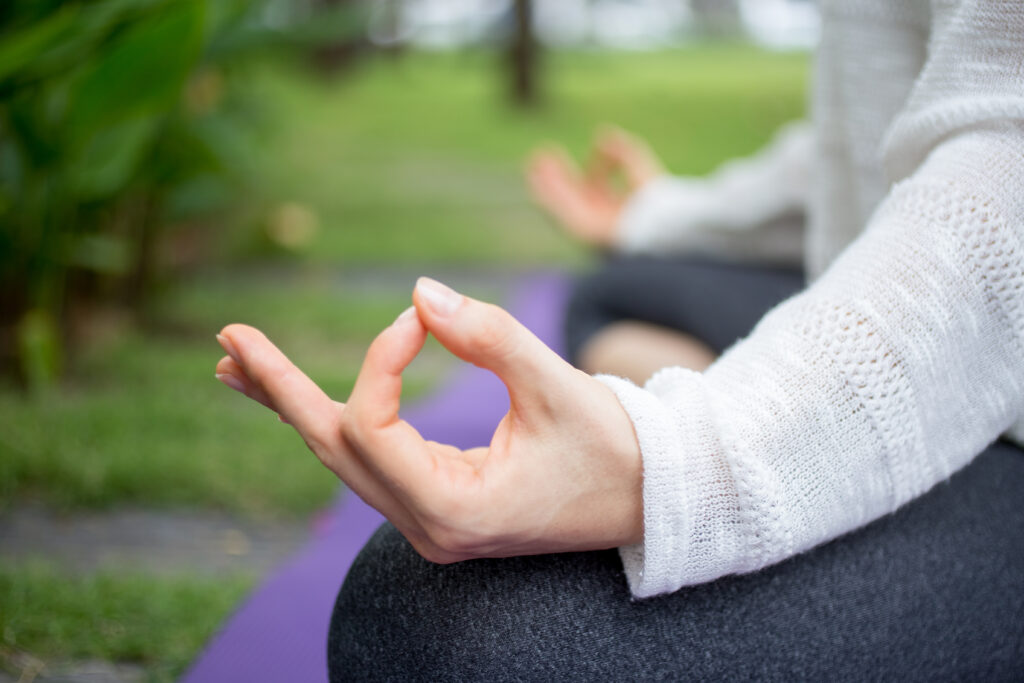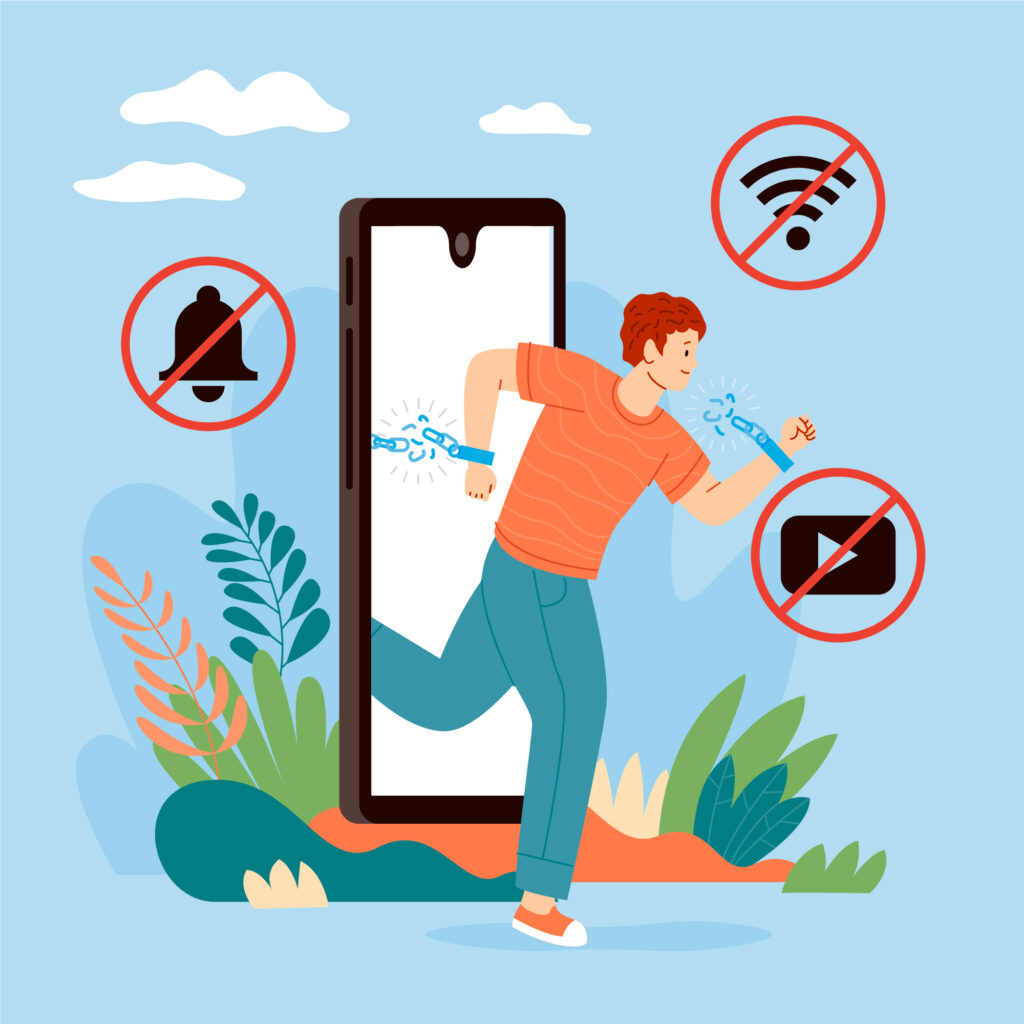In today’s tech-driven world, it’s easy to become overwhelmed by constant screen time – whether it’s social media, emails or endless notifications. This constant digital connection can have a negative impact on your mental health, leading to stress, anxiety and lack of focus.
An effective way to combat this is to adopt tech-free hobbies that allow you to unplug, recharge and focus on the present moment. In addition to reducing stress, these easy, screen-free activities foster emotional health, creativity, and mindfulness. In this post, we’ll explore a range of tech-free hobbies that can help you improve your mental health, reduce stress and achieve balance in your life.
Table of Contents
- 1 Tech-Free Hobbies to Boost Your Mental Health
- 1.1 Journaling: A powerful tool for self-reflection
- 1.2 Meditation: Center yourself in the moment
- 1.3 Painting or drawing: creative expression without technology
- 1.4 Reading: Immerse yourself in the world of a good book
- 1.5 Gardening: Reconnect with nature
- 1.6 Yoga: The mind-body connection
- 1.7 Hiking: Nature's Therapy
- 1.8 Knitting or Crocheting: Therapeutic Crafts
- 1.9 Cooking: Nourish your body and mind
- 1.10 Playing a musical instrument: Find your rhythm
- 2 The Mental Health Benefits of Tech-Free Hobbies
- 3 Tips for Getting Started with Tech-Free Hobbies
- 4 Overcoming the Challenges of Disconnecting
- 5 Unplug, Recharge, and Prioritize Your Mental Health With Tech-Free Hobbies
- 6 Final Thoughts
- 7 Frequently Asked Questions (FAQ)
Tech-Free Hobbies to Boost Your Mental Health
Making time for tech-free activities is one of the best ways to improve your mental health and restore balance. These activities allow you to step away from the constant flow of digital noise and focus on practices that nourish your mind. Below, we’ll learn about some of the most effective and enjoyable hobbies you can try to boost mindfulness, creativity, and overall emotional health.
Journaling: A powerful tool for self-reflection
Journaling is a great way to increase mental clarity and focus. Putting your thoughts, feelings, and daily reflections on paper can help you feel less stressed and anxious. As you remain attentive to your thoughts and emotions, journaling also helps you become more present.
How it helps:
- Provides a therapeutic means of processing emotions
- Increases mental clarity and reduces negative thoughts
- Provides emotional insight and encourages mindfulness
Meditation: Center yourself in the moment

One of the best methods to disconnect and reconnect with yourself is through meditation. It allows you to focus on your breath and calm your mind, providing a break from constant digital distractions. Meditation on a regular basis can increase emotional well-being, reduce stress, and improve mental clarity.
How it helps:
- Increases mindfulness and emotional balance
- Reduces anxiety and promotes mental clarity
- Increases focus and concentration, which improves mental health
Painting or drawing: creative expression without technology
Painting, drawing, and other creative activities can be quite calming and therapeutic. These activities allow you to express yourself creatively, which helps relieve stress and improve mental clarity. Plus, working with colours and shapes can make you feel better and give you a sense of accomplishment.
How it helps:
- Boost your sense of accomplishment and emotional health
- Helps calm your mind and reduce stress
- Encourages creativity and mindfulness
Reading: Immerse yourself in the world of a good book
Reading is a great way to detach yourself from the digital world. You may increase your focus, lower your stress level, and create a mental retreat from the stresses of everyday life by losing yourself in a good book. It’s also a fantastic way to increase your knowledge and sharpen your mind.
How it helps:
- Boosts mental stimulation and cognitive function
- Reduces stress and helps focus
- Boosts mindfulness and creativity
Gardening: Reconnect with nature
Gardening is not only an enjoyable hobby but also a contemplative practice that helps improve mental health. Caring for plants and being surrounded by nature can calm the mind, reduce anxiety and even improve your mood. Gardening provides a sensory experience, helping you stay grounded and connected to the present moment.
How it helps:
- Encourages physical activity and mindfulness
- Provides mood-boosting effects from exposure to nature
- Reduces anxiety and helps relieve stress
Yoga: The mind-body connection

Yoga combines physical movement with mindfulness and deep breathing, helping you relax and de-stress. Whether it’s a gentle flow or a more intense session, yoga helps release tension from your body, improves flexibility and allows your mind to focus and reset.
How it helps:
- Reduces anxiety and promotes relaxation
- Increases body-mind awareness and mental clarity
- Increases resilience and improves overall mental health
Hiking: Nature's Therapy
Spending time in nature is the best way to get away from technology and refresh yourself. Hiking provides a combination of physical exercise and mindfulness as you immerse yourself in the natural world. The peaceful environment, fresh air, and physical activity all contribute to mental clarity and stress relief.
How it helps:
- Increases cardiovascular fitness and mental health
- Improves mood and reduces stress
- Exposure to nature increases feelings of joy and tranquility
Knitting or Crocheting: Therapeutic Crafts
In addition to being creative outlets, knitting and crocheting are also incredibly calming activities. These crafts promote concentration and relaxation because they require repetitive motions. They can help you focus on the present moment while lowering anxiety and stress.
How it helps:
- Through repetition, it encourages relaxation and peace of mind
- Improves concentration and focus
- gives one a sense of accomplishment and emotional relief
Cooking: Nourish your body and mind
Cooking is a task that requires your full attention, making it a great technology-free hobby for peace of mind. The process of preparing food, whether it’s baking, cooking, or experimenting with new recipes, can be a form of creative expression and a way to focus your energy on something nourishing for both body and mind.
How it helps:
- Promotes peace of mind and creativity
- Reduces stress and promotes relaxation
- Improves overall health through healthy eating habits
Playing a musical instrument: Find your rhythm
Learning to play a musical instrument is a fun, engaging way to get away from technology and de-stress. Playing music not only stimulates creativity but also provides a therapeutic outlet for emotions. It requires attention and concentration, which helps clear your mind and reduce stress.
How it helps:
- Improves cognitive function and creativity
- Reduces stress and provides emotional release
- Promotes mindfulness and presence in the present
The Mental Health Benefits of Tech-Free Hobbies
Engaging in tech-free hobbies is more than just a break from screens; it’s an opportunity to improve your overall mental health. Here are some of the key benefits:
- Stress and anxiety reduction: Mindful hobbies like meditation, journaling, and yoga activate your body’s relaxation response, reducing stress and lowering cortisol levels.
- Improved focus and clarity: Disconnecting from digital distractions helps improve focus and cognitive function, making it easier to think clearly and stay in the present.
- Increased emotional health: Creative and nature-based activities promote emotional health by allowing you to process emotions, boost creativity, and feel a sense of accomplishment.
- Better sleep: Many tech-free hobbies, such as reading or journaling, help calm the mind before bed, improving sleep quality and reducing the likelihood of insomnia due to excessive screen time.
Tips for Getting Started with Tech-Free Hobbies
If you don’t know where to begin, here are some simple tips to help you get started:
- Start small: Begin with just 10 to 15 minutes a day of your chosen hobby, then gradually increase the amount of time as it gets ingrained in your daily routine.
- Create a tech-free zone: Designate a specific place in your home where you can pursue your tech-free hobbies, free from distractions like phones and computers.
- Schedule your time: Just like you schedule work or meetings, schedule time each day for technology-free activities. Include this as a significant aspect of your everyday routine.
- Experiment: Try a few different hobbies to see which ones you like best. It’s important to find something enjoyable and fulfilling.
Overcoming the Challenges of Disconnecting
Although it can be difficult to unplug in a world filled with technology, it’s important to remember that these tech-free hobbies are investments in your mental health. Here are a few ways to deal with common challenges:
- Deal with FOMO: Remind yourself that if you stop using technology, you are not missing out. It’s an opportunity to rejuvenate and focus on your well-being.
- Set boundaries: Schedule specific times to check email or social media, and respect these boundaries to maintain a healthy balance.
- Be patient: Unplugging can take time, but the more you practice these tech-free hobbies, the easier it will be to fully embrace them.

Unplug, Recharge, and Prioritize Your Mental Health With Tech-Free Hobbies
In a world where screens often dominate our lives, making time for tech-free hobbies is more important than ever. These activities provide an essential way to reduce stress, increase mindfulness, and improve emotional health. Whether it’s through meditation, hiking, journaling, or other mindful practices, taking time for yourself away from screens can significantly improve your mental health.
By incorporating some of these activities into your daily life, you’ll create space for relaxation, creativity, and emotional clarity. These simple, tech-free hobbies will help you achieve balance, improve your focus, and prioritize your health. So, unplug, recharge, and take up these hobbies to nourish your mind and promote a healthier, more balanced lifestyle.
According to Harvard Health, engaging in hobbies is closely linked to greater happiness and overall well-being. This makes hobbies more than just downtime; they are a meaningful part of supporting mental health.
Final Thoughts
In today’s tech-driven society, engaging in tech-free activities is a simple and powerful method to support mental health. By taking up these activities, you give yourself the gift of mindfulness, relaxation, and emotional health. Get started today – unplug, recharge, and take control of your mental health with these simple, mindful hobbies.
Frequently Asked Questions (FAQ)
Why are tech-free hobbies important for mental health?
Tech-free hobbies help reduce anxiety, stress, and mental fatigue by giving your brain a break from constant digital distractions. They improve mindfulness, focus, and overall emotional well-being.
Can tech-free hobbies improve focus and productivity?
Yes! Tech-free hobbies like meditation and reading help clear your mind and improve mental clarity, making it easier to focus and be more productive in other areas of your life.
How much time should I spend on tech-free hobbies every day?
Start with 10 to 15 minutes a day, you can slowly add more time as you get used to it. The key is consistency, not duration, so even short daily sessions can greatly benefit your mental health.
How do tech-free hobbies help with sleep?
Tech-free hobbies like reading or journaling before bed can relax your mind and help you calm down. Staying away from screens at night improves sleep quality by reducing the impact of blue light on your sleep cycle.
You Might Also Like
- How to Use the 8 Dimensions of Wellness to Balance Your Life
Explore a comprehensive approach to promote mental, emotional, and physical well-being. - 10 Minimalist Habits That Will Instantly Simplify Your Life
Discover small lifestyle shifts that reduce overwhelm and bring clarity to your daily routine. - Skin Fasting: A Holistic Guide to Naturally Restore Your Skin’s Glow
Unplug from your skincare products and learn how a break can support both mental and skin health.
